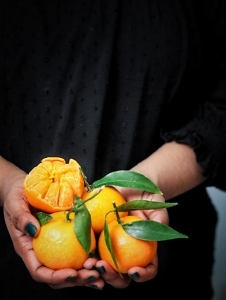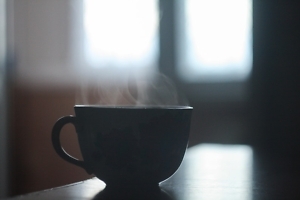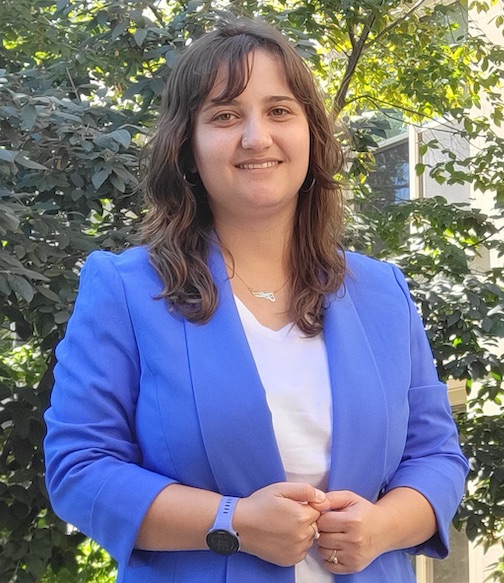Overtime
On Saturdays, we play with their children and pour the tea
Saturday, 10 a.m. I am at the Birdhouse, an old Victorian home in the Fourth and Gill neighborhood that has been repurposed as a community meeting space, and I am tearing open a mesh bag of Cuties. I arrange the clementines on the table next to the store-bought croissants and juice boxes; this has now become a ritual, though not a meditative one.

I am interrupted by text messages from volunteers telling me that the clients aren’t home or aren’t ready or don’t have a car seat; the language barrier precludes them from coaxing the ladies to the car. I troubleshoot and reassure. Soon children start to toddle in ahead of their mothers, shoes missing or on the wrong feet, followed by retired white ladies carrying booster seats and toys and looking frazzled. I put on my best hostess smile and thank them profusely for their patience.
The volunteers are now in the backyard refereeing the older kids’ ball game. The sun starts to peer through the overcast sky. I am holding the littlest baby on the back steps and stabbing straws into successive juice boxes for the eager toddlers who have formed a queue. I am sleepy, and I am missing Saturday brunch, but I’m glad these work hours will buy me out of some time during the week. I can’t complain. These Congolese refugee women’s support groups were my doing, after all. No one specifically asked me to invent more work for myself on weekends. But I’ve had woman after woman sit in my office at the resettlement agency and answer my questions about transportation with shame in her eyes. “How do you get to work?” I ask. “Are you taking the bus?” Each one relies on a ride from a different Congolese man more familiar with America. Each has her own guy who’s agreed to show her the ropes, who has the critical currency of a car. The price? Sex.
Baby on my hip, I’m back in the house for another handful of juice boxes and some clementines. I’ve tried to remove myself from the situation, giving the mamas and teen girls their space to speak openly. As I fumble with the snacks at the back table, Mariam stands up. She’s the orator of the group, much like her husband. She thanks the facilitator from the Sexual Assault Center of East Tennessee, thanks the interpreter, thanks God. She begins everything with a benediction. I catch words and phrases I know in Swahili — gari, kazi, mtoto, basi, probleme — and I note the nods and mumbles of agreement from the group. Who can blame them for their predicament? The bus is slow and unreliable and means wrangling kids in the rain. I’ve lived in Knoxville my whole life, and I’ve never even taken the bus myself. How can I expect them to? I shush the baby and slip out, my brief intrusion a violation.

As the meeting dissipates, volunteers fumble with car seats, and babies scream at the uprooting. The food I intended to save for next week disappears into bags and cars, and I let it, nonprofit budget be damned. I debrief with the interpreter and facilitator, and the discussion reveals our naivete, as always. These women who have carried their rapists’ children don’t find it useful to frame this transportation transaction as violence. These women who have always known poverty do not find it useful to look at maps and count coins and stand at stops when a few minutes of grinning and bearing will get them straight to their destination. The talk therapy and resources and phone numbers that the speaker’s brochures have to offer are all good and well for violence, but this is not that. This is survival.
I know these women would rather have mandazi or chapati than Food City croissants. I know my breakfast offering is humble at best and unappetizing at worst. But I’ve learned about Nido, and I’ve learned where to find its big yellow can in the store so they can stir its familiar powder into their tea. I’ve systematized the childcare and learned how to coddle the volunteers. The groups are growing, from 3 women to 8 and now to 20. Sure, women are still riding with men to the grocery store during the week. But on Saturdays, we play with their children and pour the tea. And everyone leaves a little more full than when they arrived.

Copyright © 2023 by Summer Awad. All rights reserved. Summer Awad is a Palestinian-American poet, essayist, and playwright from Knoxville. She is a second-year MFA candidate in Creative Writing and Environment at Iowa State University and has four years of experience in refugee resettlement work in Tennessee.


